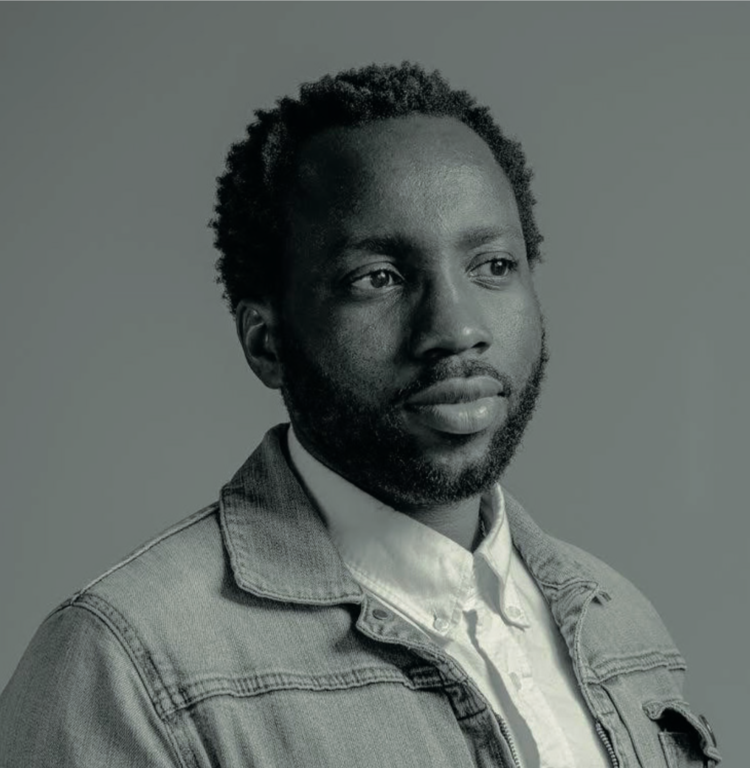Point of Origin Episode 11
Naija! What is Nigerian Food?
Welcome back to Point of Origin - Season 2! In this episode we honor Black History Month by exploring Nigerian foodways, and unpacking #NAIJA, the proudly held generational moniker that bonds Nigerians. What is it and how is it expressed through food?
We’re joined by Chefs Tunde Wey, Yewande Komolafe, and Michael Adé Elégbèdé to discuss Nigerian food, the origin of Nigerian dishes, and how these chefs are championing their food to interrogate systems of power.
Available on Apple Podcast, Spotify, & iHeartRadio
Tunde Wey on Nigerian Food, Identity
“Nigerian food is hearty all the time, even our thin soups stay long after they’ve had their say. Nigerian food is never subtle. But the brashness of the dish is a front, just a front. It is all complexity. It is one pot cooking, stewing and hard learnt mercies delivered at the right time so the textures are just perfect. The flavors, like uneven but compatible logs, are stacked, fermented atop smokey atop air dried, and what you have is us. This is true for all the different uses that are from this place…”
Tunde Wey
Tunde Wey is a Nigerian born-and-raised, New Orleans based artist cook and writer who uses Nigerian food and dining spaces to interrogate systems of power.
He is a contributor to Whetstone Volume 5 and has been featured in The New York Times, NPR, GQ, The Washington Post, VOGUE, Black Enterprise, Food and Wine, and my writing has appeared in the Oxford American, Boston Globe, and San Francisco Chronicle.
See more on his website and follow his work @from_lagos
Making Frejon with Yewande Komolafe
“To tell the story of frejon is to tell the story of Lagos, because Lagos was a port city and the seat of the slave trade”
Frejon is a dish of beans pureed with coconut milk, most often served with a spicy tomato fish sauce. After the abolition of slavery in Brazil in 1888, many Brazilians of West African origin returned to Nigeria and settled in the Lagos Island, now known as the city's Brazilian quarter. Their unique blend of African and Latin cultures flowered into a cuisine that continues to be enjoyed across Nigeria. Join Yewande in the kitchen as she walks us through how she makes Frejon.
For the full recipe and more, check out Yewande Komolafe’s 10 Essential Nigerian Recipes on the New York Times.
Yewande Komolafe
Chef Yewande photo from http://www.yewandekomolafe.com
Yewande Komolafe was born in Lagos, Nigeria and moved to the United States for college. She is curious about the origin of dishes, how to combine ingredients in new ways, and about the ways we connect through food. Yewande is a recipe developer, food stylist and author of the New York Times “10 Essential Nigerian Recipes”. Along with her experience kitchens across the country, she’s developed and tested hundreds of recipes for the James Beard Foundation, Bon Appétit, Saveur, and The New York Times.
See more on her website and follow her work @yewande_komolafe
The Power and Privilege of Owning your own Story
“People often say, the people who write the story will tell the story, own the story. And what I've learned from a lot of the chefs, the stories they tell, they get to tell the story of their cuisine, of their food, of their people through the art that they have.”
Chef Michael photo from https://www.michaelelegbede.com/about
Michael Elégbèdé
A native of Nigeria and third generation chef, Michael Adé Elégbèdé started his journey in the kitchen at a very young age when he was exposed to his mother’s and grandmother’s work running local restaurants that also served as cooking schools for young women.
In a journey to find his true Identity as a chef, Elégbèdé was compelled to return to his country of origin after 13 years to explore the diverse cultures and traditions that make up the Nigerian cuisine. He spent a good portion of the time traveling to the more remote areas of the country, experiencing, documenting, and learning the unique nature of their cuisine and ingredients.
Chef Elégbèdé and his team currently work from the ÌTÀN’s test kitchen located in the heart of Ikoyi, Lagos. The test kitchen serves as a space for recipe and development; chef and his team rediscovering and reimagining the different ways Nigerian ingredients can be used and it cooking traditions interpreted to curate remarkable eating experiences.
See more on his website.




